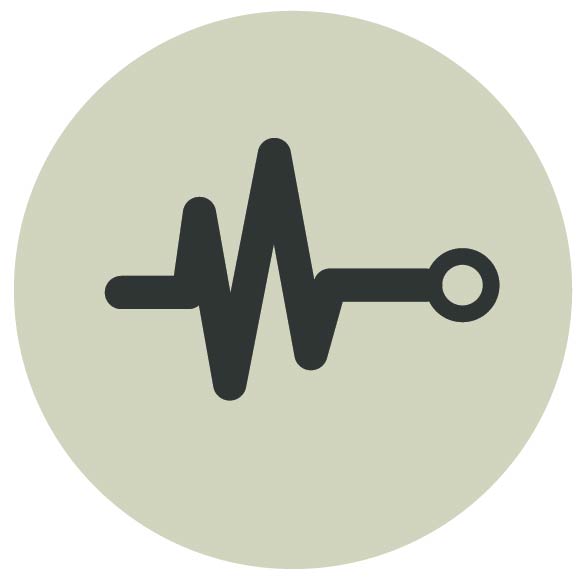ME/CFS is chronic, complex, multisystem disease that can produce a wide-range of disabling symptoms dramatically impacting a person's ability to initiate or complete everyday tasks and to mobilise normally.
It is primarily recognised as being neurological (affecting the central and peripheral nervous systems), but problems have also been determined that effect the way in which the immune and endocrine (hormone producing) systems function, and how energy is metabolised in cells.
The content on this page is provided solely for information purposes and provides an overview of the subject matter covered - it has kindly been reviewed by the ME Association. It is not a substitute for professional medical advice, diagnosis or treatment. If you think you have diabetes type 1, please seek further information. The information on this page is subject to change without notice.
ME is an invisible disability
 ME/CFS might be invisible – but the impact it has can clearly be seen
ME/CFS might be invisible – but the impact it has can clearly be seen It can affect anyone– any age, any ethnicity – and can occur at any time of life.
It can affect anyone– any age, any ethnicity – and can occur at any time of life. Over 17 million people are thought to be affected worldwide
Over 17 million people are thought to be affected worldwide An estimated 80% of people might not have an official diagnosis
An estimated 80% of people might not have an official diagnosis 20–40 is thought to be the peak age of onset and it affects more women than men (4:1 ratio)
20–40 is thought to be the peak age of onset and it affects more women than men (4:1 ratio) Perhaps 25% are housebound or bedbound and will rely on others for the most basic of needs
Perhaps 25% are housebound or bedbound and will rely on others for the most basic of needs Twice as common as MS
Twice as common as MS ME stats & facts poster Download here
ME stats & facts poster Download here
For the majority of people, ME/CFS occurs after an infection that is often acute in nature. It is believed that between 5-10% of all people affected by any of a number of viral or bacterial infections are unable to recover their full health as might otherwise be expected. Such individuals will often develop a post-infectious fatigue syndrome and, at 3 months, will meet the criteria for a diagnosis of ME/CFS.
Known infectious triggers for ME/CFS include:
- Coronaviruses (MERS, SARS, COVID-19).
- Enteroviruses (e.g., Coxsackie B).
- Epstein Barr Virus (e.g., Mono, Glandular Fever).
- Human Herpes Virus (Cytomegalovirus or Herpes Zoster).
- Human Parvovirus B19.
- Meningitis (viral or bacterial).
- Pneumonia (Streptococcus Pneumoniae) (bacterial).
- Q Fever (Coxiella burnetii) (bacterial).
- Rhinoviruses (the ‘common cold’ viruses).
It is believed that up to 260,000 people in the UK are likely to be affected, although many will not have an official diagnosis. Women are more at risk from the condition than men (4:1 ratio). It is an indiscriminate disease that can occur in adults, children, and people from any socio-economic group or ethnic background. It can also occur in more than one family member.
ME/CFS can lead to greater functional impairment and poorer quality of life than other serious medical conditions, including diabetes, congestive heart failure, multiple sclerosis and even most cancers. It is the biggest single cause of long-term sickness absence from school and prevents many adults from working. It has been estimated to cost the UK economy at least £3.3 billion a year in health care, disability-related welfare payments, productivity losses and unpaid informal care.*
It can range from a relatively mild form of illness that might allow a limited return to work or education to moderate, severe, and very severe, where a person will be very ill and confined to bed with a need for 24-hour care. Most people will have experienced a range of illness severities. The unpredictable nature is one of the things that make this condition so hard to live with.
ME/CFS can affect people differently and will limit their ability to initiate or complete activities that had previously been possible before the triggering event. It often follows a relapsing-remitting pattern of symptom severity and functional incapacity, although, for some, it can be progressive. Full recovery is rare, but improvements can be sustained over time and with appropriate and careful management, allowing for a better quality of life.
Effect on and challenges faced in daily life
The symptoms experienced by someone living with ME/CFS can have an extreme and life-changing effect that impacts the person, family and work.
- A historic lack of understanding, awareness and recognition of ME/CFS can mean facing considerable misunderstanding about their condition
- Increased work absences: 85% of those with ME/CFS have experienced some form of lost employment due to the illness
- Social isolation: lower perceived levels of social support, and some individuals can become confined to their house, wheelchair or bed and dependent on carers for many or all of their needs
- Hypersensitivities to synthetic chemicals, especially pesticides
- Difficulty with concentration and processing information is common
Assistance and support you can offer
- Take time to find out and understand what ME/CFS is
- do not make assumptions about how ME/CFS affects someone - find out from them from their ME/CFS is like and how you can support them
- be supportive and flexible with plans as they may need to re-arrange or cancel plans depending on the severity of their symptoms
- be patient and consider giving time to write out an answer to a question so they can then process information and read it out loud
- provide written notes of meetings
Sources:
Action for M.E https://www.actionforme.org.uk/
American Myalgic Encephalomyelitis and Chronic Fatigue Syndrome Society https://ammes.org/what-is-mecfs/
MEAction https://www.meaction.net/
Mayoclinic: https://www.mayoclinic.org/diseases-conditions/chronic-fatigue-syndrome/symptoms-causes/syc-20360490
NHS: https://www.nhs.uk/conditions/chronic-fatigue-syndrome-cfs/
ME Association: https://meassociation.org.uk/
Look out for these Sunflower icons

I have accessibility needs I may need more time
I may need more time I need a quiet/safe place
I need a quiet/safe place I may need a place to sit down and rest
I may need a place to sit down and rest Do not touch me
Do not touch me I am sensitive to sound
I am sensitive to sound I am sensitive to light
I am sensitive to light I am sensitive to smell
I am sensitive to smell I have a hidden disability
I have a hidden disability
The content on this page is provided solely for information purposes and provides an overview of the subject matter covered - it has kindly been reviewed by the ME Association. It is not a substitute for professional medical advice, diagnosis or treatment. If you think you have ME/CFS, please make an appointment to see your doctor. The information on this page is subject to change without notice.
You can visit the ME Association website to access a complete range of literature about ME/CFS and related topics, including how to recognise symptoms, what is involved in making a diagnosis, and how best to manage the condition. And, in the UK, please contact the ME Connect telephone helpline (0344 576 5326) should you have any further questions (available 365 days a year during the hours: 10am – 12pm, 2pm – 4pm, and 7pm-9pm).
For further information, please visit the ME Association:
The ME Association is a national charity that helps thousands of people with ME/CFS/PVFS each year in the UK. It is estimated that between 130,000 and 260,000 people are struggling to live with this life-changing neurological condition.
It can affect people of all ages and from all socio-economic and ethnic backgrounds and can lead to long-term disability and a lower quality of life than multiple sclerosis or cancer.
- We provide reliable information and we campaign to raise awareness of the inequalities affecting this large patient
- We fund and support biomedical research with the hope that an effective treatment can be discovered.
- We offer training for healthcare professionals and we are working to effectively implement the new NICE clinical guideline.
(ME/CFS = Myalgic Encephalopathy/Encephalomyelitis/Chronic Fatigue Syndrome. PVFS = Post-Viral Fatigue Syndrome. Long Covid = Post-Acute Sequelae of SARS-CoV-2.)



